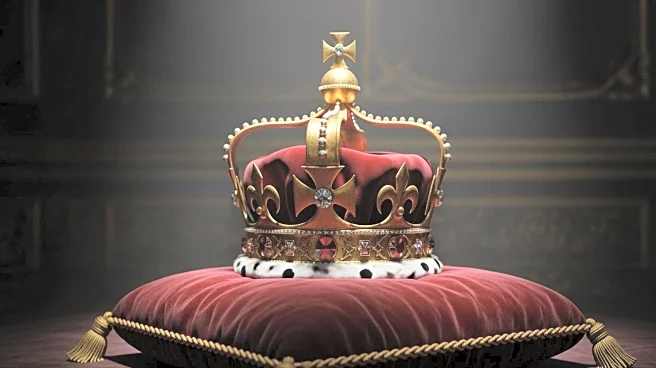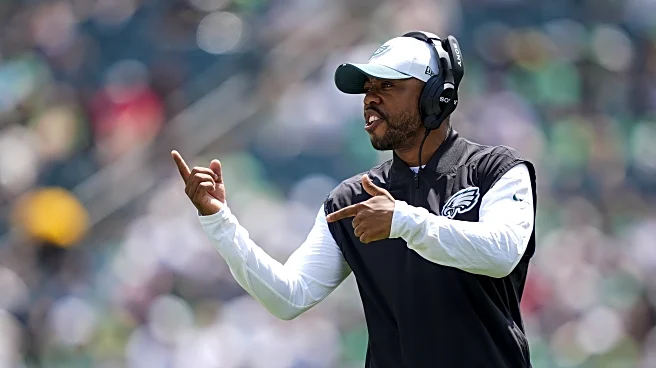What's Happening?
Prince Andrew has agreed to give up his remaining royal titles following revelations that he maintained contact with Jeffrey Epstein longer than previously admitted. The decision comes after emails emerged
showing Andrew's continued communication with Epstein, contradicting his earlier statements. The move is part of efforts by King Charles III and Prince William to modernize the monarchy and protect its reputation. Andrew's involvement in scandals, including allegations by Epstein accuser Virginia Giuffre, has led to his sidelining from royal duties.
Why It's Important?
The decision to sideline Prince Andrew reflects the monarchy's efforts to distance itself from scandals and maintain public trust. The move highlights the challenges faced by royal institutions in managing reputational risks and adapting to modern expectations. The case underscores the impact of personal conduct on public roles and the importance of accountability and transparency in maintaining institutional integrity.
What's Next?
The monarchy's decision to sideline Prince Andrew may lead to further scrutiny of royal conduct and relationships. The ongoing discussions about modernizing the monarchy could result in changes to royal protocols and public engagement strategies. The case may prompt broader conversations about the role of the monarchy in contemporary society and its ability to address ethical and reputational challenges.
Beyond the Headlines
The sidelining of Prince Andrew highlights the ethical and cultural dimensions of royal conduct and the importance of maintaining public trust. The case raises questions about the balance between tradition and modernity in royal institutions and the need for transparency and accountability. The public's interest in the case reflects broader societal concerns about power, privilege, and the role of public figures in addressing ethical challenges.









